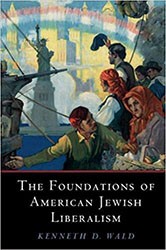Professor Eisenbaum offers the general reader the most realistic first-century portrayal of the apostle Paul ever written. Traditionally presented by Christians as the champion of a new and better religion than Judaism, and in turn caricatured by Jews as a dangerous apostate who either did not understand Judaism or purposefully misrepresented it, Paul remains a significant figure in modern discourse, and a stumbling block in efforts to promote mutual respect and trust. But both of these representations of Paul are not likely historically. Finally there is a book for the non-specialist that challenges this overwhelming consensus.
According to Eisenbaum, although Paul believed in Jesus Christ, this did not represent for him and his initial disciples the founding or building of a new religion, even if that eventually resulted in later generations. Rather, Paul was a reformer working within Judaism under the conviction that a new stage of development had begun, one in which Israel would bring the message of her God to the people of the nations.
Many interesting and useful insights emerge from reading Paul, not anachronistically through the lens of later developments, but first of all as a Jew in the Greco-Roman world of the mid-first century, with all of its socio-political and religious dynamics. That Paul provides one of the only extant firsthand Jewish witnesses to inter-Jewish as well as Jewish/pagan tensions of the decades just before the Judean revolt that precipitated the destruction of the temple in 70 CE. In addition, Eisenbaum puts that Paul into dialogue with the prevailing portrayals of Paul, so that the reader can understand the tension that emerges from the contrasting constructions of him and his teachings.





